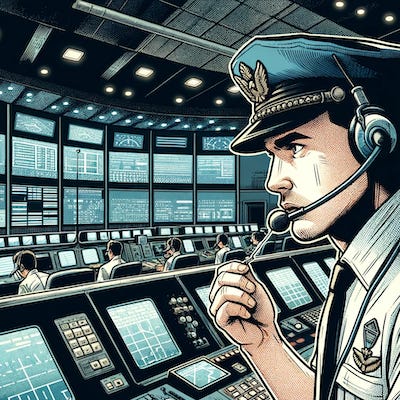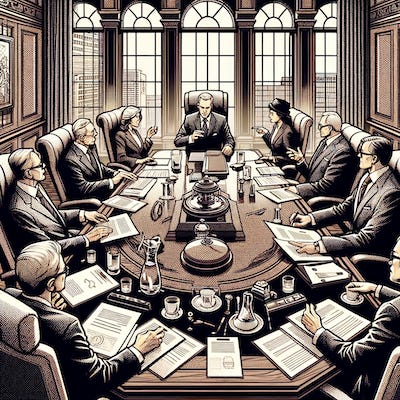6:20 am.
29 Oct, 2018.
A Boeing 737 MAX plane belonging to Lion Air took off from Jakarta (Indonesia).
A few minutes later, the pilot got on the radio.
He asked the air traffic controller for clearance. He wanted to return to the same airport.
13 minutes after taking off, the air traffic controller could not hear the pilot on the radio.
The plane had crashed.
The plane was brand new. Even the plane model was brand new.
The 737 MAX airplane was a brand-new series of planes by Boeing – approved for commercial flight in March 2017.
A newly developed plane crashing? Worrying.
A few months later, in March 2019, an Ethiopian Airlines plane crashed similarly. This was also a Boeing 737 MAX.
Aviation authorities around the world started banning the plane until further notice.
After investigations, the mistake was found.
Boeing was to blame. It was a technical error in an automated system of the plane.
Immediate Aftermath
After these two crashes, the CEO of Boeing resigned.
A new CEO was appointed.
After some time, Boeing made corrections to its 737 MAX. The plane started flying again.
This opened a can of worms.
People started questioning the past decisions of Boeing.
Another different Boeing project had taken longer than expected to develop. And it cost more than originally planned.
The past few Boeing CEOs were blamed for spending too much time on saving costs and not enough time on good engineering.
Who were these CEOs?
Can a CEO be fired?
If yes, who hires the new CEO?
Who owns Boeing?
And finally, why was the owner of Boeing not doing anything about the situation?
Public Companies
Whenever we think of a company, we imagine a situation like Reliance or Mahindra or Infosys.
We imagine that a company is owned by either its founders or their family.
Some companies are owned by no single person or family.
They are just owned by shareholders – small and big shareholders.
The company is on the stock market. People can buy and sell shares. And that’s it.
The founder or his/her family no longer has a controlling stake in the company.
You might be surprised to learn that some well-known companies work like this – without a single owner.
Boeing is one such company.
The founder of Boeing died long ago – the company itself is 100+ years old.
His family no longer has control of the company.
No single person owns Boeing. No single company owns Boeing.
It is a company that belongs to investors.
How?
As you know, many companies do an IPO.
Then, their shares are available on the stock markets.
How do founders and their families reduce their ownership in the company?
One of the easiest ways is by selling their stocks.
This might seem odd to some people.
Many founders leave the companies they start. They may retire or choose to pursue another career.
If they feel like they need money, they might sell their shares.
Many times, after the death of the founder, the families slowly sell their shares – because they need the money; or feel they cannot run the business.
Another reason is the creation of new shares.
When new shares are created, the number of total shares increases.
This is done to reward current working executives.
If the founders or his/her family members do not work in the company, they will not be given the newer shares.
If this keeps happening, over time, the percentage owned by the founder/founder’s family reduces.
So who owns the company then?
If you have enough money to buy a big chunk of shares of the company, you can become the owner!
But often, these companies are so huge, that is very difficult.
These companies are mostly owned by institutional investors – like mutual funds, hedge funds, pension funds, etc.
And you might guess this – regular investors invest in mutual funds. Many investors invest in hedge funds.
So effectively, these companies are owned by hundreds and thousands of individual investors!
Examples
Uber was founded by Travis Kalanick. He left the company and sold his shares.
Today, Uber’s biggest shareholders are institutional investors. Travis himself sold his shares.
When we think of Microsoft, we think of Bill Gates.
Bill Gates has sold most of his shares. He only owns around 1% or 2% of the company now.
Microsoft’s biggest shareholder is Vanguard – a mutual fund company.
Apple? Again, Vanguard is the biggest shareholder.
The shareholders vote and elect the board members of these companies.
The board is responsible for hiring a CEO and making other crucial decisions.
The CEOs and other senior executives are paid a salary – just like a regular job. A part of the salary is paid as newly created stocks.
These stocks are worth a lot of money.
But they are rarely so much that the hired CEO gets control of the company.
The current CEO of Uber – Dara Khosrowshahi owns less than 1% of Uber.
Apple CEO Tim Cook also owns a very small part of Apple.
Some of the biggest companies in the world are now operating like this: Alphabet (Google) founders have been reducing their stake in the company. Similarly with Amazon.
Who Is Driving?
In conversation with many new investors, we realized that this idea – that many companies have no single ‘owner’ – is unheard of.
Many people have heard of these companies.
But they think there would be a founder or a family that owns these companies.
This edition of Weekly Groww Digest should throw some light on the topic.
Such ‘ownerless’ companies are called ‘professional management driven companies’.
And companies that are led by their founders/promotors are called ‘promotor driven companies’.
Now, you must be wondering if there are any professional management driven companies in India.
Try to find out who owns HDFC, ICICI, and ITC.
And then research further.
You will discover many names.
The illustrations used above are made using an AI tool (DALL-E).
Quick Takes
+Indian Rupee fell to an all-time low against US Dollar: Rs 83.48.
+ISRO successfully tested India’s first reusable launch vehicle ‘Pushpak’.
+5G users in India are consuming 3.6 times more mobile data as compared to 4G users: Nokia.
+SEBI will start beta testing for the T+0 settlement cycle from 28 March.
+Indian airlines will fly 24,275 domestic flights per week in the summer season (starting 31 March), 6% year-on-year increase.
+JSW Group and MG Motor have formed a joint venture to manufacture electric vehicles in India. They plan to launch New Electric Vehicles (NEVs) every 3 to 6 months from September.
+2023 was the hottest year on record. 2013-2023 was the hottest decade: UN.
+Global brand Unilever is planning to demerge its ice cream business. It will lead to 7,500 job losses. Their famous brands include Magnum and Ben & Jerry’s.
6-Day-Course
Theme of the week: Emergency Money
We’ve reached the end of this week’s course that started on Monday.
Here’s a test you should take. Get pen and paper!
Question 1:
How much expense should the Emergency money cover?
-6 months
-12 months
-24 months
-Depends on individual (no fixed limit)
Question 2:
Emergency money should be kept in ____ ?
-Mutual funds
-Liquid funds/Bank account/FD
-Shares of a company
Question 3:
FD is the only place to store emergency money. No liquid funds should be kept in hand for emergency money.
-True
-False
Question 4:
Emergency money can be used __________
-Only for medical/financial emergency
-To buy the new iPhone.
Question 5:
Credit cards have no spending limit and can always be used in emergency situations.
-True
-False
Answers:
Q1: Depends on individual (no fixed limit)
Q2: Liquid funds/Bank account/FD
Q3: False
Q4: Only for medical/financial emergency
Q5: False
The information contained in this Groww Digest is purely for knowledge. This Groww Digest does not contain any recommendations or advice.
Team Groww Digest






